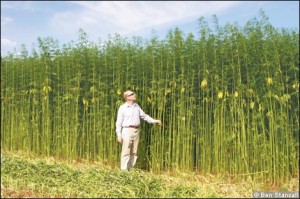Recent High Notes
|
On Friday, Kentucky State Agriculture Commissioner James Comer succeeded in forcing
editor Bo Shaffer
All Rights Reserved 2014
Recent High Notes
|
On Friday, Kentucky State Agriculture Commissioner James Comer succeeded in forcing

Galleries display a beautiful grid of images right in the editor, just like they do in your published post.
FEATURED ARTICLE
OPINION: From Bitcoin to Beets
Posted on April 17, 2014 by Slow Money
 |
 |
By Woody Tasch
The recent collapse of Mt. Gox and the “inconvenience,” in its CEO’s words, caused by the disappearance of hundreds of millions of dollars of Bitcoin investors’ money, should make us all think about the history of finance and … organic beets.
 |
 |
We invented joint stock companies in 1600, came to what appeared to be an inexhaustible continent, took everything, cut it up into pieces and started selling it to strangers, only to find ourselves finally selling Ones and Zeros and Sliced and Diced Who-Knows-What Derivatives to invisible strangers. In milliseconds and in incomprehensibly large quantities.
Then came Bitcoin.
Then came Bitcoin “mining.”
 |
 |
Now, I could rant about the absurdity of roomfulls of servers, funded by venture capitalists, applying the extractive, industrial mentality of mining to the techno-seductiveness of virtual currency, but I’d rather talk about organic beets.
As in, thousands of us starting to invest in local, organic food enterprises—something startlingly common sensical yet seemingly radical in today’s byzantine world of hypersecuritized capital markets.
Under the improbable banner of something called Slow Money—let’s call it the polar opposite of Bitcoin—we are acting on the visceral sense that there is such a thing as money that is too fast, securities that are too abstract and complex, and companies that are too big. We are fermenting a peaceable little non-technological revolution in investing.
 |
 |
It’s as if we were taking all the macro numbers of economic growth—the Dow Jones Industrial Average, the Case Shiller Index, GDP, Consumer Confidence, the value of all the barrels of oil still in the ground—and throwing them into a jar along with some friendly bacteria of the Care of the Commons, Sense of Place, Diversity and Nonviolence Kind.
Over the last few years, the Slow Money network has put over $35 million into over 300 small food enterprises around the country (and a few in Canada, France and Switzerland), supporting small and mid-size organic farms and the many small food businesses that create jobs, revitalize Main Street, build carbon in the soil (where we want carbon, as opposed to in the atmosphere), improve health, and create fertility at the base of a restorative economy.
This is a small part of a larger movement that is asking: After all the globalization and financial razzmatazz, don’t we need to bring some of our money back down to earth?
 |
 |
A number of NGOs are emerging to rebuild local economies, including the Business Alliance for Local Living Economies, the Post-Carbon Institute and the Institute for Local Self-Reliance. Small new investment intermediaries are emerging too, including RSF Social Finance, Mission Markets and Farmland LP.
To fix our economy from the ground up, we need to do more than Buy Green and Buy Local. We need to do more than regulate the excesses of Too Big Too Fail. We need to Invest Local. We need to take a little of our money out of there—the abstract, complex, ultra-fast world of global investing—and put it to work here—near where we live, in things that we understand.
 |
 |
Food is a great place to start. Slow Money investments are supporting dairy coops, organic grain mills, regional food hubs, seed companies, restaurants that source locally, compost companies, niche organic brands, grassfed beef producers and more. Investments have ranged in size from a few million dollars to a few thousand dollars. Investors include experienced angel investors and family foundations, but are mostly just plain regular folks who want to know where their food comes from and where there money goes.
You may ask: Is this investing or is this philanthropy?
The answer is embedded in the experience that more than half a million Americans are having as members of CSAs—farms that sell shares of their production in advance of each season. I’ve asked thousands of CSA members around the country: How many of you ever calculated quantitative metrics supporting your decision to join a CSA—food miles, price, nutrient density, pesticide levels, organic matter in the soil or any other such factors? In many years of asking this question, only a few people have raised a hand and said they had done any such calculating.
 |
 |
This suggests that hundreds of thousands of Americans are using a sense of innate value to pre-pay for food from a local farmer. They are entering into an arrangement that is part investment decision, part consumption decision, part transaction, part relationship, part capitalism, part socialism, both deeply conservative and deeply liberal.
This is where we must head if want a healthy economy. Away from Bitcoin and towards beets. Away from anonymous transactions and towards healthy relationships. Away from computer screens and towards farms and fertility. Beyond financial diversification and towards diversity—ecological diversity, cultural diversity, economic diversity.
 |
 |
Because, after all, what is more diverse than a gram of fertile soil, with its billions of micro-organisms and thousands of species, most of them not yet named?
Posted on April 17, 2014 by Slow Money
|
|
Summer Star Haeske has spent many years working alongside the ‘pioneer of hemp’ in the United States, Ms Barbara Filippone (her mother) in all areas of the hemp industry. She was an essential ingredient in the opening of EnviroTextiles more than eleven years ago and has assisted in all phases of the company as well as the development, sales and importation of hemp textiles.
Summer’s responsibilities include maintaining production for EnviroTextiles stock , new product development, Sales & Marketing as well as International and Domestic Transport codes and logistics worldwide. Summer Star is currently supervising our sales team overall and is passionate about marketing hemp for a better sustainable future. As a current board member of HIA (Hemp Industries Association) she continues to educate the public about the product’s environmental, health, and biological advantages.
|
|
|
Enviro-Fiber Foam™ is our latest naturally developed product. We combined the durability of coconut fiber with a natural latex to produce a multi-purpose high density “green” fiber foam product. Enviro-Fiber Foam™ is the first eco-friendly alternative to Polyurethane Foam.
The applications for Enviro-Fiber Foam™ include any traditional fiber foam application, such as mattress padding, upholstery padding, sound proofing, etc..The ceiling tiles in the image to the left are built from our rigid natural foam. Other application possibilities for our fiber foam may include:
• Composite
• Car panels
• Seating
• Wall Paneling
• Soundproofing

Maija Szymanowski works at a stand at Pike Place Market Thursday, Feb. 6, 2014 in Seattle that sells body-care products including lotions, salves, and serums made in Washington state with hemp that is grown in Canada. With recreational marijuana use now legal in Washington, state legislators are discussing whether the state should also launch an industrial hemp industry.
SPOKANE, Wash. — With recreational marijuana use now legal in Washington, state legislators are eyeing whether the state should also allow an industrial hemp industry.
Hemp, like marijuana, comes from the cannabis plant but has much less THC, the active ingredient in marijuana that makes people high. The hemp plant has thousands of industrial uses and could provide a new cash crop for farmers.

The state Senate is considering a bill that would authorize Washington State University to study the feasibility and possible value of an industrial hemp industry in Washington.
“We have a long tradition of hemp usage on our country,” said State Sen. Jeanne Kohl-Welles, D-Seattle, a sponsor of the bill. “The Declaration of Independence was written on hemp paper.”
The federal government outlawed hemp decades ago as part of its efforts to stop marijuana production and use, Kohl-Welles said.
Several people spoke in support of the bill at a recent hearing by the Senate Agriculture, Water and Rural Economic Development committee.
Aimee Warner, a member of the Washington Hemp Industry Association, said the crop would grow well in the state’s climate.
“Our farmers are ready to, and need to, start putting industrial hemp seeds into the ground immediately,” Warner said. “There is an irrational fear of this historically persecuted crop.”
Chris Mulick, a lobbyist for Washington State University, said the college is “eager to help the state understand the viability and profitability of growing industrial hemp.”
But he warned the university must comply with U.S. laws in order to keep receiving federal research funds and student aid dollars.
Mark Streuli of the state Department of Agriculture said that agency also supports hemp cultivation.
“We think if there’s a prospect of a crop out there that enhances the viability of agriculture in Washington state, we support that,” Streuli said.
There is no organized opposition to the hemp study bill, which passed the committee and was sent to the Ways and Means Committee.
In 2012, Washington residents passed Initiative 502, which legalized recreational marijuana and, coincidentally, gave new life to the hemp movement.
In other countries, hemp is used to make thousands of different products, including clothing, food, beauty products and biofuels. The plants provide high yields with relatively few growing costs, Kohl-Welles said.
Canada legalized hemp cultivation in the 1990s, and Kohl-Welles believes the crop would provide a big boost to farmers in the U.S.
One of the most beneficial products could be biofuels, as hemp is more efficient than corn for making such fuels, she said.

Some committee members wondered if unlicensed marijuana grows could be illegally concealed in hemp fields. But people who testified at a hearing said marijuana plants are thick and bushy while hemp plants are tall and thin.
Joy Beckerman Maher, who has been pushing for hemp legalization for decades as a member of the Hemp Industries Association, stressed that industrial hemp does not get people high.
“The only feeling you would get is an awful headache,” Maher said.
The new national Farm Bill allows hemp cultivation to begin for research purposes. Such studies must be concluded by next January. Ten states have approved hemp production, including California and Oregon.
John Novak of Lake Forest Park, a member of the Cannabis Action Coalition, said legalization of hemp “will do more to end the federal war on cannabis.”
“In the end you are going to find more tax dollars from it,” he told the committee.
Top of Page
http://finance.yahoo.com
© Copyright (c)